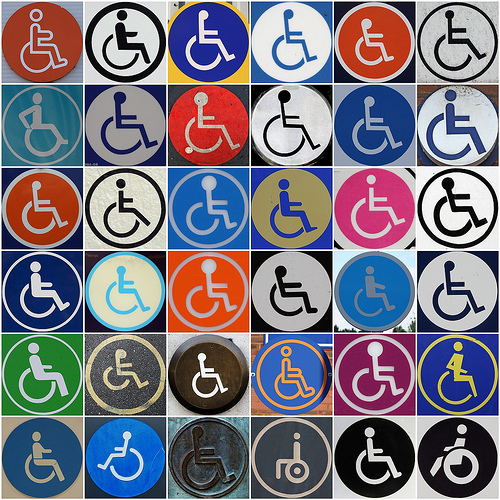
Image Credit:
Leo Reynolds via The National Benefit Authority
I teach The Rhetoric of Harry Potter, which has an exceedingly long waitlist—for the past two semesters, the waitlist consisted of 50 UT seniors, and for awhile I couldn’t figure out why the 23 students in my class weren’t all seniors, especially since it looked like underclassmen didn’t even have a chance to get on the waitlist. After the first week or so in the semester, I found out why I had a mix of seniors, juniors, sophomores, and freshmen: a large number of my students have disabilities recognized by Students for Services with Disabilities, which allowed them to register during priority registration ahead of seniors.
About 50% of my class turned in letters from SSD, and there may still be more who have said nothing. Though these letters don’t relate the nature of their disabilities, and it would be impossible to tell from looking at them that they were disabled, many of my students have told me in confidence that their accommodations are related to anxiety disorders and other mental health disorders. As a result of their anxieties, my students often panic about the quality of their work and due dates.
They’ve also expressed anxieties about coming to see me in office hours when they’re worrying about upcoming due dates or when they’ve fallen behind on assignments. When you have one or two students with disabilities, it might be easy to become annoyed with the one student who can’t make due dates and who won’t come see you, even when you know that the student can and will perform at the A level on writing assignments. When you have ten (and counting) students with disabilities, it’s no longer an option. You can’t get annoyed; you have to find solutions.
As grad student instructors, I think many of us are aware of the dreaded Impostor Syndrome, the anxiety that comes with writing three 20-page papers in one week, and the dread we feel when we submit our writing to our peers, our advisors, and academic journals. And, we may have had the misfortune of being told to get our acts together by people who weren’t so nice about it, and the fortune to have supportive friends and advisors who tell us to do the same thing sympathetically.
In the classroom, I’ve never really been a hand-holder. I’m easily annoyed when students expect me to behave maternally. I’m even more annoyed when students don’t turn papers in on time because it throws off my schedule for grading them. But with so many intelligent students falling behind, I had to do something. I had to be sympathetic. I had to remember all the times that I was freaked out about a due date, overextended with extracurriculars, and terrified that my instructor would say, as one undergraduate advisor said to me, “Why are you here? Can you make this quick?”
I think our lack of sympathy as instructors and advisors comes from too much emphasis on student independence, without realizing that the first step toward independence for students with disabilities will be realizing there’s a problem and asking for help. I’ll just go ahead and say that’s the first step for all students, which is why my syllabus this year includes this: “Help will always be given at Hogwarts to those who ask for it.” As instructors, we should be aware that students who seem needy may just be on their way to becoming more, rather than less, independent.

